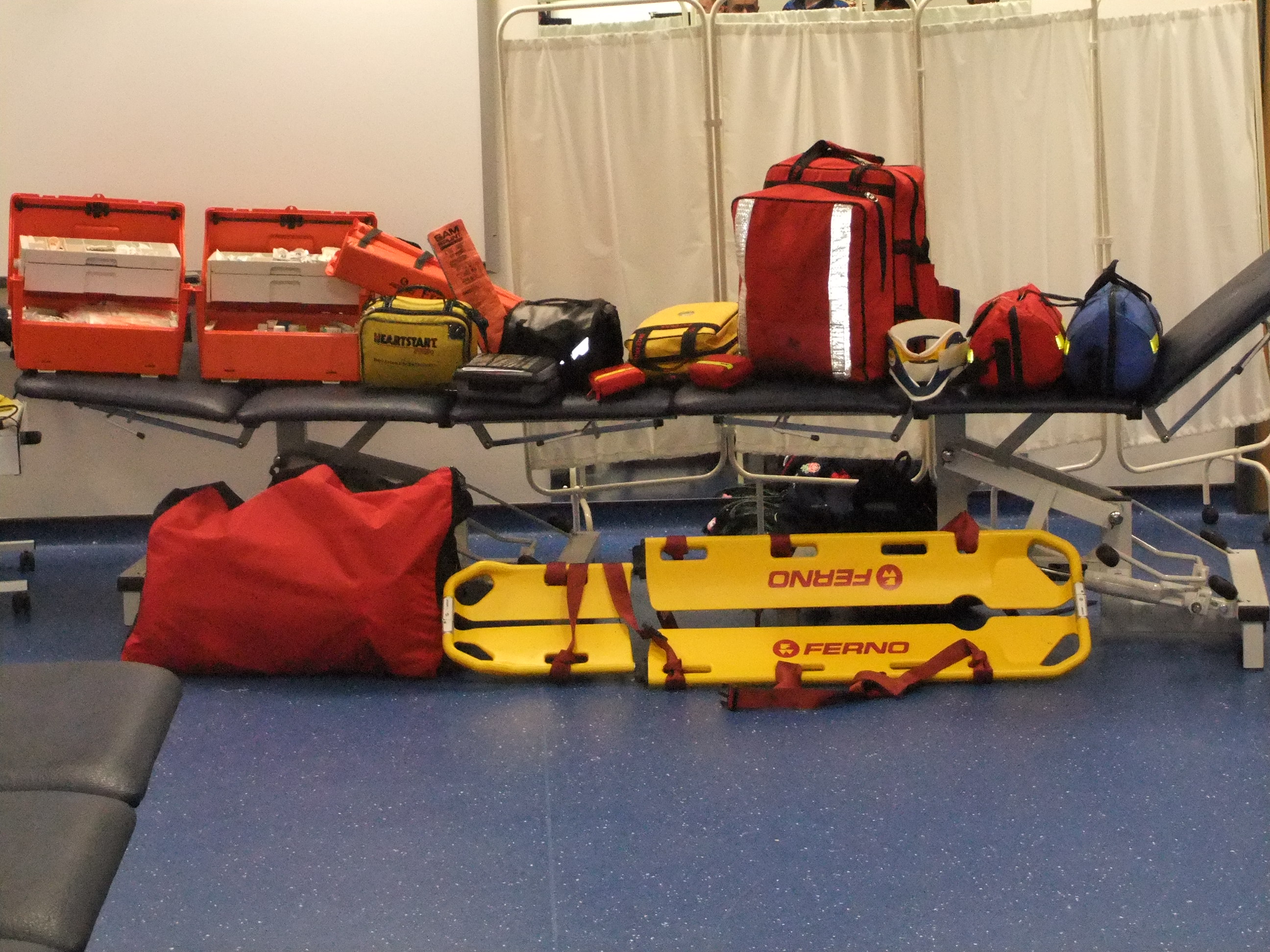Equipment List
A suggested equipment list is below. This is best derived by completing a risk assessment and should be reviewed and adapted to your specific sporting environment and matched to the skills of the medical personnel in attendance.
- A Long (Spinal) Board or Split long board Scoop) with Head Immobiliser and an appropriately trained stretcher carrying team (those trained by the medical staff to adequately and safely, under the direction of the medical staff, transfer a player onto the stretcher and move them from the field of play).
- Cervical Semi-rigid Collar(s) - an assortment of collars will be available to fit every player or 2 adjustable collars. Soft neck collars are not suitable.
- Splints (immobilisation of upper and lower limbs).
- Stethoscope
- Sphygmomanometer/BP cuff
- Airways (a full range must be present)
-
- Oropharyngeal airway (assorted sizes)
- Nasopharyngeal airway (assorted sizes)
- i-gel® supraglottic airways (assorted sizes)
- Pocket mask with one way valve
- Bag-valve-mask
- Emergency Surgical Cricothyroidotomy equipment and needle cricothyroidotomy equipment
- Oxygen - to include variable flow rate oxygen cylinders, bag-valve-mask device, non-rebreathe masks, and purpose made carrier
- Entonox with patient self-administration system, in purpose made carrier
- Portable Suction (can be handheld or powered).
- Suture Sets and Sutures – must be disposable sets or sterilised to current national standards.
- Penlight torch
- IV giving sets
-
- 1l crystalloid (not 5% dextrose)
- IV Cannulae (sizes 14G-22G)
- Cardiac Defibrillator – this must be either a manual defibrillator or ideally an AED with a monitor screen and manual override
- Nebuliser mask and tubing
- Crutches

An inventory of all equipment should be kept and signed on a weekly basis by the clinical lead responsible or nominated deputy, for an example see appendix 1.
The following is a suggested emergency drug box available on all match/event days training sessions where medical personnel trained in Immediate Care in Rugby. The final list will depend on risk assessments and emergency action planning.
- Adrenaline 1mg 1:10,000 pre-filled syringes
- Adrenaline 500mcg 1:1000 pre-filled syringes x 1 or epipen
- Atropine pre-filled syringe or ampoules
- Amiodarone 300mg & 150mg pre-filled syringe
- Dextrose 10% 500ml bag
- Glucose gel
- Hydrocortisone 200mg ampoules
- Chlorpheniramine 10mg ampoules
- Water for injection 10ml ampoules
- Suitable selection of IV antibiotics
- Suitable IV anti-emetic
- Suitable oral and IV analgesia
- Diazepam 10mg rectal tube x 1
- Salbutamol inhaler x 2
- Salbutamol 2.5 & 5mg nebules
- Atrovent 500mcg nebules
- Tranexamic Acid
- Green/blue/orange needles
- 1ml, 2ml, 5ml, 10ml, 20ml syringes
All drugs must be in date at all times. An inventory of all drugs and their expiry dates must be kept and signed on a before each event and at least on a weekly basis by the clinical lead responsible. An alternative approach is to use security tags on the drugs boxes and a check list used when the tag broken. Using this method, it is essential to have an accurate data sheet with expiry dates to ensure all out of date drugs replaced before they expire.